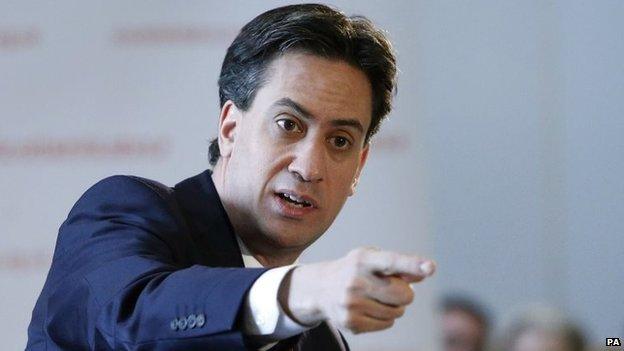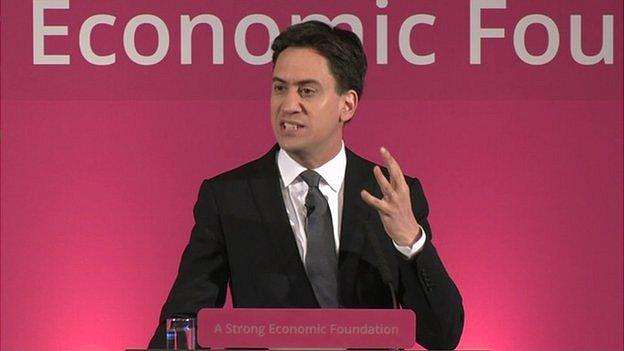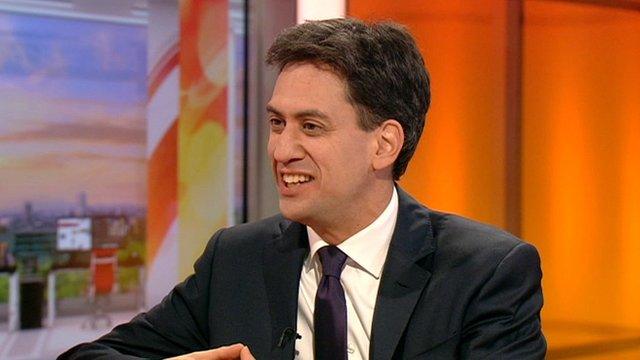The speech that remembered the deficit
- Published

Just weeks after the speech which forgot the deficit comes the speech that remembers it - big time.
Ed Miliband knows he has a problem and can sense an opportunity.
The problem is Labour's lack of economic credibility - something every opinion poll confirms.
The opportunity is the chance to paint the Tories as not merely serious about cutting borrowing but ideologically obsessed with it.
He and Ed Balls believe that their lack of credibility is rooted not in the lack of understanding of their detailed economic policies, but in their perceived inability to say "no" to more spending.
Hence the headline from this speech is a warning that "unprotected departments" ie any other than the NHS and overseas aid, will face real cuts every year under Labour until the deficit is cleared.
What either of the Eds could have said today is that their alternative approach to the economy would allow them to borrow a lot more and spend more, at least in the short term.
This is because they are only committed to balancing the CURRENT deficit so can still borrow for capital or investment spending.
In addition they have said they will clear the deficit as soon as possible - which sounds tough but allows them two or three years more than the current coalition plan.
Ed Miliband's five principles of deficit reduction - spelt out in today's speech - are a restatement of his existing rhetoric.
The most important one captures his belief that if the next government helps deliver higher wages - through the living wage, skills programmes, crackdowns on the abuse of the low paid etc - they will be rewarded with a higher tax take and, therefore, less borrowing.
His analysis - shared by many economists - is that the Tories have been running very fast on cuts only to find themselves with borrowing barely moving.
The strategic aim of "the speech that remembered the deficit" is not just to convince wavering voters that Labour is serious about cutting borrowing, but to allow them to argue that, unlike their opponents, they won't risk public services or the the public finances when they do it.
One thing the speech, as briefed, does not contain is any new example of how Labour would actually cut spending.
UPDATE 1:20pm: The 1930s comparison was made first not by Labour or the BBC but by the OBR so is not spurious BUT - and it is a BIG but - it refers to one thing and one thing only - the SHARE of the national cake taken by spending on public services
It allows Labour to hint that it's back to the soup kitchens and kids with no shoes with the Tories which it isn't because it is ALSO true that spending in real terms under the Tory plan will end up the same as it was in 2002.
Just as the 1930s isn't as terrifying as it might at first sound, the 2002 comparison isn't as reassuring because since then the population's got bigger and older and demands more in the way of health & social services etc
Another way to look at the same thing is to ask whether we're getting more like America or Singapore who spend around 35% of their GDP on the state or more like Germany or Scandinavian countries that spend in the mid 40s.
- Published11 December 2014

- Published24 September 2014
